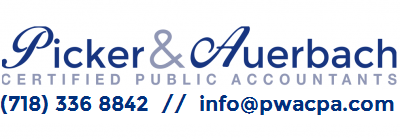
UNCERTAINTY about future tax rates is complicating estate planning at a time when the economic downturn offers significant opportunities.
Most methods of saving estate taxes reduce a person’s net worth through irrevocable lifetime transfers. Yet even the very wealthy are sometimes reluctant to take this step, because they worry that it will leave them short of money, said Lloyd Leva Plaine, a lawyer with Sutherland, the Washington-based firm. Market turbulence and changing political tides exacerbate those fears.
Even if you have no estate tax concerns, strong reasons remain for creating trusts and maintaining old ones, said Steve R. Akers, managing director at the Bessemer Trust Company in Dallas. They can safeguard your assets and provide for your care if you can no longer handle your affairs; they can also hold money for minors, prevent funds from being eroded by spendthrift family members and protect assets from former spouses or someone who wins a lawsuit against you.
Because of a quirk in the current law, the estate tax is scheduled for repeal at the end of 2009. Then, after a year with no estate tax, it would return at the unfavorable rates that applied in 2001, unless Congress enacts a new plan. For 2008, the exemption amount is $2 million a person and the rate is 45 percent; the exemption increases to $3.5 million in 2009 with the rate unchanged.
Neither presidential candidate wants the tax repealed, and each has offered a proposal for modifying it. Senator Barack Obama favors a system in which there would be no tax on the first $3.5 million worth of assets that each of us leaves behind, and a tax of 45 percent on everything above that amount — in other words, continuing the 2009 model. Senator John McCain’s proposal would allow $5 million to pass tax-free and would lower the tax rate to 15 percent.
Both political parties also support a proposed tax break for married couples. It would permit a surviving spouse to carry over any portion of the exempt amount that wasn’t used by the deceased spouse. Couples would be exempt from estate tax if their combined assets were up to $7 million under the Obama plan or up to $10 million under the McCain version.
Such a measure would require major legislation to make up for the revenue lost by lowering the tax rate or raising the exemption. Congress might, for example, curtail the use of other estate planning tools, said Dennis I. Belcher, a lawyer with McGuireWoods in Richmond, Va. The possibilities include stricter rules on the use of certain kinds of trusts and on family limited partnerships.
Lawmakers might also opt for the path of least resistance and keep extending the 2009 rates, one year at time, rather than making them permanent or tackling the bigger issues, Mr. Belcher said — no matter who occupies the White House.
While it may be tempting to wait and see, Mr. Akers of Bessemer Trust said the current downturn offers estate planning opportunities. Here are some strategies to consider:
CONVERT A TRADITIONAL IRA TO A ROTH This multipurpose strategy can eliminate the income tax that you or your heirs would have to pay when withdrawing the funds. You also avoid the requirement to take yearly minimum distributions beginning at age 70 ½, which can leave more for your heirs if you don’t use the money yourself.
Although you must pay tax on the amount being converted, a decline in account values makes conversion a potential bargain right now, said Barry C. Picker, an accountant and financial planner with Picker, Weinberg & Auerbach in Brooklyn. Assuming the investment springs back, that appreciation will escape income tax.
If estate taxes might also be an issue, a Roth conversion offers an additional benefit. Money spent on income taxes reduces your net worth and leaves less that could be subject to estate taxes.
The main catch is the income limits that apply until 2010. For now, you can do a conversion only if you are single or filing jointly and your adjusted gross income — modified by adding back in foreign income, foreign-housing deductions and other items — is below $100,000. Affluent retirees with no earned income and with tax-efficient investments might well qualify. A Roth conversion is a valuable, low-tech estate planning technique, often overlooked because many advisers are not fluent with the complexities or assume, sometimes mistakenly, that their clients will not qualify.
MOVE INVESTMENTS THAT HAVE LOST VALUE You can give $12,000 worth of assets a year to as many recipients as you like without paying gift tax. Spouses can combine this annual exclusion to give $24,000 jointly to any person (or a trust for his or her benefit). If you want to give away more than that, you can either count your gift against the $1 million lifetime exemption — the total of taxable gifts each person can make without incurring gift tax — or, if you have used up the exemption, pay gift tax of 45 percent.
By transferring property now, when market values are low, you can pack more into these limits, Ms. Plaine said. For gift-tax purposes, you count the value of the asset at the time of the transfer. Any appreciation is not subject to estate or gift tax.
TAKE ADVANTAGE OF LOW INTEREST RATES A couple of planning devices that can reduce or eliminate the gift tax are especially attractive because interest rates are still very low.
One is the grantor-retained annuity trust, or GRAT. You put assets into a short-term irrevocable trust, and you retain the right to receive annual income equal to the value of what you contribute plus interest at a rate set each month by the Internal Revenue Service (the Section 7520 rate). If you survive the trust term — a condition for this tool to work — any appreciation in the trust when the annual payments end passes to your family.
If the property doesn’t perform, “you haven’t really lost anything,” said Carlyn S. McCaffrey, a lawyer with Weil, Gotshal & Manges in New York. The trust would satisfy its payout obligations by giving you back the assets.
A popular alternative to a GRAT is for senior family members to sell assets to a trust that will benefit younger relatives and, in exchange, take back an interest-bearing promissory note. Assuming a sale at fair-market value and interest at the applicable federal rate, which is lower than the Section 7520 rate, there is no gift and therefore no gift tax.
With both of these strategies, your hope is that the value of the assets will increase by more than the interest rate by the time the trust or loan term ends. If that happens, you will have shifted all that excess to family members without having to pay gift tax.
In today’s uncertain environment, these tools have another attraction. Each creates an income stream — an annuity from a GRAT or interest in connection with a loan — for the person making the transfer. If you want to do estate planning but are afraid of running out of money, this can greatly add to your level of comfort.




